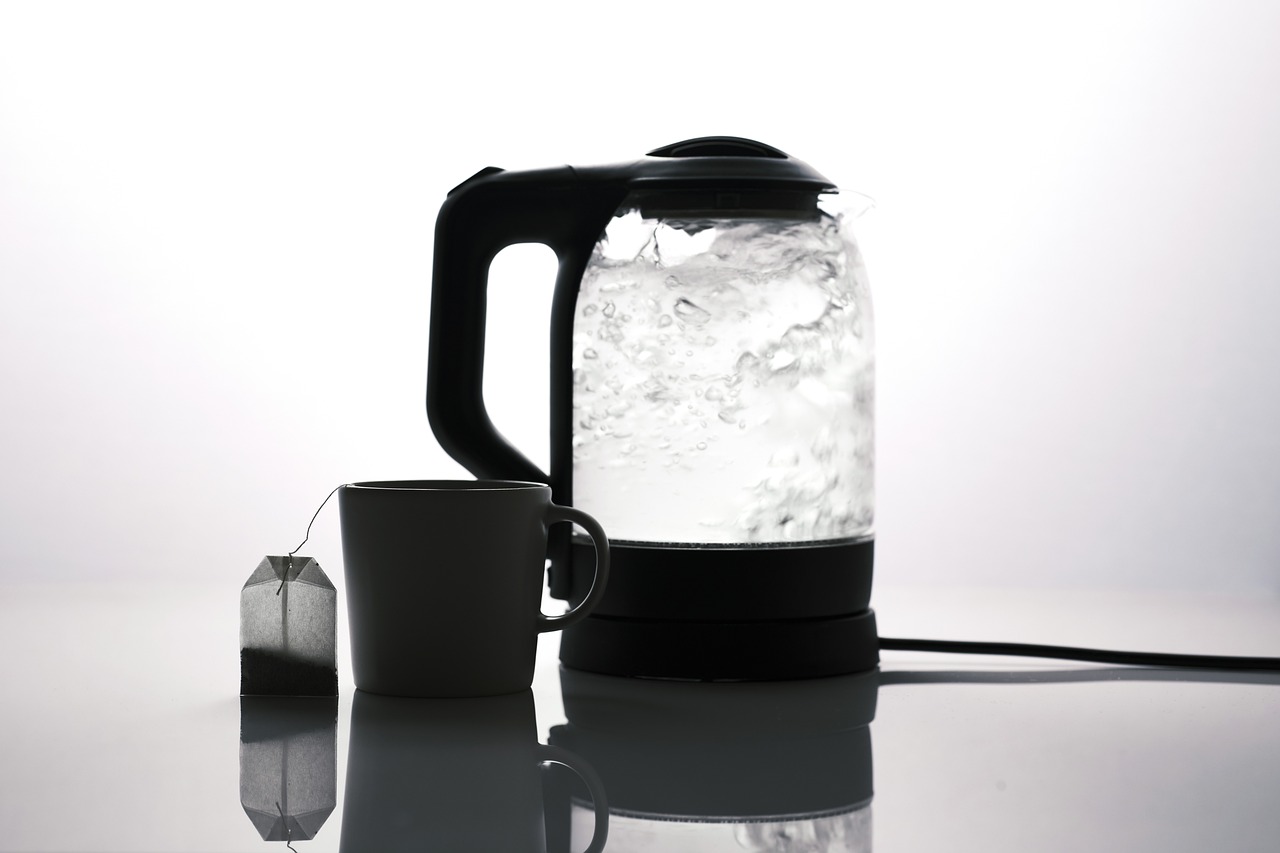This article delves into the intricacies of water consumption during fasting, addressing common questions and misconceptions while providing practical insights for those observing various fasting methods.
The Basics of Fasting
Understanding fasting is essential for anyone looking to incorporate it into their lifestyle. Fasting involves abstaining from food and, in some cases, beverages for a set period. There are several forms of fasting, including intermittent fasting, which alternates between eating and fasting periods, religious fasting, which often has specific guidelines, and extended fasting, which can last for several days.
Types of Fasting
Each fasting method has its own rules regarding water intake. Below are some popular types:
- Intermittent Fasting: This method involves cycling between periods of eating and fasting. Water is typically allowed during fasting periods, which helps maintain hydration.
- Water Fasting: This more extreme approach allows only water consumption. It is crucial to stay hydrated, as dehydration can lead to serious health issues.
- Dry Fasting: This method prohibits both food and water intake, which can be risky and should be approached with caution.
Intermittent Fasting Explained
Intermittent fasting has gained popularity for its potential health benefits. Common schedules include:
- 16/8 Method: In this method, individuals fast for 16 hours and eat during an 8-hour window. Water intake is encouraged throughout the fasting period to ensure hydration.
- 5:2 Method: This approach allows normal eating for five days and fasting for two. During fasting days, water consumption is vital for maintaining health.
Health Benefits of Staying Hydrated
Hydration is crucial, especially when fasting. Drinking water can:
- Enhance Physical Performance: Adequate hydration supports exercise and daily activities, improving endurance and reducing fatigue.
- Boost Mental Clarity: Staying hydrated aids cognitive function, enhancing focus and productivity during fasting.
Potential Risks of Dehydration
Dehydration poses significant health risks during fasting. Recognizing the signs is essential:
- Signs of Dehydration: Common symptoms include thirst, dry mouth, fatigue, and dizziness. It’s vital to address these symptoms promptly.
- Long-Term Effects: Prolonged dehydration can lead to serious health complications, particularly for individuals who fast frequently.
Do’s and Don’ts of Drinking Water While Fasting
To maintain hydration without disrupting fasting goals, consider the following guidelines:
- Do: Listen to your body. Pay attention to thirst cues and drink water as needed.
- Don’t: Overhydrate. While hydration is essential, excessive water intake can lead to health issues, including electrolyte imbalances.
In summary, understanding the role of water during fasting is crucial for anyone looking to reap the benefits of this practice. By following the outlined do’s and don’ts, individuals can ensure they stay hydrated and healthy while observing their fasting methods.

The Basics of Fasting
Understanding the fundamental principles of fasting is crucial for anyone looking to improve their health or spiritual well-being. Fasting is not merely about abstaining from food; it encompasses a variety of practices that can differ significantly in purpose and methodology. This section delves into what fasting entails, its various forms, and how each type can impact your body and mind.
What is Fasting?
Fasting is defined as the voluntary abstention from food and drink for a specified period. It has been practiced for centuries across different cultures and religions, often for spiritual reasons, health benefits, or detoxification. Understanding the nuances of fasting can help individuals choose the method that best aligns with their goals.
- Intermittent Fasting: This popular approach involves cycling between periods of eating and fasting. Common schedules include the 16/8 method, where one fasts for 16 hours and eats within an 8-hour window.
- Religious Fasting: Many religions incorporate fasting as a way to enhance spiritual growth. For example, Ramadan in Islam involves fasting from dawn until sunset, focusing on prayer and reflection.
- Extended Fasting: This type of fasting lasts longer than 24 hours and may involve consuming only water. It is often undertaken for detoxification or health improvement, but should be approached with caution.
Why Fast?
The reasons for fasting can vary widely. Some individuals fast for health benefits, such as weight loss, improved metabolism, and enhanced mental clarity. Others may do so for spiritual reasons, seeking a deeper connection to their beliefs. Regardless of the motivation, understanding the specific type of fasting you choose is essential for maximizing its benefits.
Health Benefits of Fasting
Research has shown that fasting can lead to various health benefits. Intermittent fasting, for instance, has been linked to improved insulin sensitivity, reduced inflammation, and even longevity. It allows the body to enter a state of autophagy, where it cleanses damaged cells and regenerates new ones.
Moreover, fasting can promote mental clarity and focus. Many individuals report heightened cognitive function during fasting periods, attributing it to the absence of digestive processes that can divert energy away from brain function.
Considerations Before Fasting
While fasting can offer numerous benefits, it is not suitable for everyone. Individuals with certain medical conditions, such as diabetes or eating disorders, should consult a healthcare professional before starting any fasting regimen. Additionally, it is vital to remain aware of your body’s signals and adjust your fasting approach accordingly.
In summary, understanding the fundamental principles of fasting is essential for anyone considering this practice. By exploring different forms of fasting and their potential benefits, individuals can make informed decisions that align with their health goals and lifestyle choices.

Types of Fasting
Fasting has gained significant popularity in recent years, not only for its potential health benefits but also for its spiritual significance in various cultures. Different fasting methods have unique guidelines regarding water consumption. Understanding these guidelines is essential for anyone looking to maximize the benefits of their chosen fasting approach. This section outlines popular fasting types, including intermittent fasting, water fasting, and dry fasting, highlighting their specific rules regarding hydration.
- Intermittent Fasting: This method alternates between periods of eating and fasting. The most common schedules include the 16/8 method and the 5:2 method. During fasting periods, water consumption is generally encouraged, as it helps maintain hydration without breaking the fast. However, some variations may restrict other beverages.
- Water Fasting: In this more extreme fasting approach, individuals consume only water for a set period. Hydration is crucial here, as it helps flush out toxins and supports bodily functions. Proponents of water fasting often report increased mental clarity and physical well-being, but it’s essential to consult with a healthcare professional before undertaking this method, especially for extended periods.
- Dry Fasting: This method involves abstaining from both food and water for a specific duration. It is considered more challenging and is often practiced for short periods. While some believe that dry fasting can enhance detoxification, it carries significant risks of dehydration. Therefore, individuals should approach this method with caution and ideally under medical supervision.
Each fasting type has its own set of rules regarding water consumption, which can significantly impact the overall experience and health outcomes. For instance, while intermittent fasting allows for water intake, dry fasting does not, making it vital to choose a method that aligns with personal health goals and lifestyle.
Understanding these various fasting types and their hydration guidelines can help individuals make informed choices that support their health and wellness objectives. Whether you are looking to lose weight, improve metabolic health, or simply explore the benefits of fasting, knowing how to manage water intake is a critical component of the process.
Intermittent Fasting Explained
Intermittent fasting (IF) has gained immense popularity as a flexible and effective approach to weight management and overall health. It involves alternating cycles of eating and fasting, allowing the body to enter a state of fat-burning and cellular repair. This section delves into the most common intermittent fasting schedules and their implications for hydration, which is crucial for maintaining health during fasting periods.
Common Intermittent Fasting Schedules
- 16/8 Method: This is one of the most popular forms of intermittent fasting, where individuals fast for 16 hours and eat during an 8-hour window. For instance, one might eat between noon and 8 PM. During the fasting period, water consumption is not only allowed but encouraged to maintain hydration.
- 5:2 Diet: In this method, individuals consume a regular diet for five days of the week and restrict calorie intake to around 500-600 calories on two non-consecutive days. On fasting days, drinking water is essential to stave off hunger and maintain energy levels.
- Eat-Stop-Eat: This approach involves fasting for a full 24 hours once or twice a week. Staying hydrated during these extended fasting periods is crucial, as it helps to curb hunger pangs and supports metabolic functions.
Hydration Implications During Fasting
While intermittent fasting offers numerous health benefits, it also raises questions about hydration. Water plays a vital role in various bodily functions, including digestion, metabolism, and temperature regulation. During fasting, it’s important to ensure adequate water intake to avoid dehydration, which can lead to fatigue, headaches, and decreased cognitive function.
Water Consumption Guidelines
- Listen to Your Body: Pay attention to thirst cues. If you’re feeling thirsty, it’s a sign your body needs water. Keeping a water bottle handy can help remind you to drink.
- Avoid Overhydration: While staying hydrated is essential, drinking excessive amounts of water can lead to a condition known as hyponatremia, where sodium levels in the blood become dangerously low. Balance is key.
Incorporating water into your fasting routine is not only beneficial but necessary. It can help manage hunger, maintain energy levels, and support overall health during the fasting periods. Remember that hydration is a personal journey; what works for one individual may not work for another. Experimenting with different water intake levels can help you find the right balance.
Conclusion
Understanding the various intermittent fasting schedules and their hydration implications can greatly enhance your fasting experience. By prioritizing water intake and staying attuned to your body’s needs, you can maximize the benefits of intermittent fasting while ensuring your health remains a top priority.
16/8 Method
The is a widely embraced approach to intermittent fasting, where individuals fast for 16 hours and eat during an 8-hour window. This method has gained popularity due to its simplicity and flexibility, allowing people to align their eating habits with their daily routines. However, an essential aspect that often gets overlooked is the role of water intake during the fasting period.
During the fasting hours, water consumption is not only permitted but highly encouraged. Staying hydrated is crucial for maintaining optimal health and supporting bodily functions, especially when food intake is restricted. Water helps in regulating body temperature, keeping joints lubricated, and ensuring that organs function properly. Furthermore, it aids in the elimination of waste products and toxins from the body.
One of the most significant benefits of drinking water while observing the 16/8 method is its ability to curb hunger pangs. Often, individuals mistake thirst for hunger, leading to unnecessary snacking. By drinking adequate amounts of water, one can reduce feelings of hunger and make it easier to adhere to the fasting schedule. Additionally, hydration can help maintain energy levels, which is particularly important during the fasting phase.
It’s essential to understand that while water is beneficial, there are some do’s and don’ts regarding water consumption during fasting:
- Do: Listen to your body. If you feel thirsty, drink water. Thirst is a natural signal that your body needs hydration.
- Don’t: Overhydrate. While staying hydrated is important, excessive water intake can lead to water intoxication, which can disrupt electrolyte balance.
Another important factor to consider is the temperature of the water. Some studies suggest that drinking cold water can temporarily boost metabolism as the body works to warm it up. On the other hand, warm water may aid digestion and help in detoxification. Therefore, individuals may choose their water temperature based on personal preference and health goals.
In addition to plain water, herbal teas and black coffee (without added sugars or cream) can also be consumed during the fasting period. These beverages can provide additional hydration and may even offer health benefits, such as antioxidants from herbal teas.
It’s important to note that while the 16/8 method allows for flexibility in food choices during the eating window, maintaining a balanced diet rich in nutrients is vital. Consuming water-rich foods, such as fruits and vegetables, during the eating period can also contribute to overall hydration and health.
In summary, the 16/8 method can be an effective way to manage weight and improve metabolic health. However, proper hydration should not be overlooked. By understanding the importance of water intake and following the outlined guidelines, individuals can enhance their fasting experience and support their overall well-being.
5:2 Method
The of intermittent fasting has gained popularity for its simplicity and flexibility. This approach allows individuals to eat normally for five days of the week while restricting calorie intake on the remaining two days. During these fasting days, a common question arises: Can you drink water? This article delves into the importance of water consumption during fasting days and its significant role in maintaining overall health.
Water is essential for various bodily functions, and its importance is magnified during fasting periods. On fasting days, individuals typically limit their caloric intake to about 500-600 calories, depending on gender. However, hydration remains crucial, and drinking water is not only permitted but highly encouraged.
- Hydration and Metabolism: Staying hydrated helps maintain metabolic processes. Water supports digestion, nutrient absorption, and the elimination of waste products.
- Appetite Control: Drinking water can help manage hunger pangs. Sometimes, the body confuses thirst with hunger, leading to unnecessary snacking. A glass of water can alleviate this confusion.
- Energy Levels: Dehydration can lead to fatigue and decreased energy levels. Ensuring adequate water intake helps keep energy levels stable, allowing individuals to maintain their daily activities.
Moreover, on fasting days, it’s essential to understand the types of water consumption that can be beneficial:
- Plain Water: The best choice for hydration, as it contains no calories.
- Herbal Teas: Unsweetened herbal teas can be consumed freely, offering flavor without added calories.
- Broth: Low-calorie broth can provide hydration and essential electrolytes, making it a good option for those who feel weak or lightheaded.
However, while hydration is vital, it’s also important to avoid overhydration. Drinking excessive amounts of water can lead to a condition known as hyponatremia, where sodium levels in the blood become dangerously low. This can cause symptoms such as nausea, headache, and confusion.
In addition to physical health benefits, adequate hydration during fasting days can also enhance mental clarity. Research indicates that even mild dehydration can impair cognitive function, affecting focus and productivity. Therefore, drinking sufficient water can help maintain mental sharpness, which is particularly beneficial during fasting when one may feel sluggish.
In summary, the 5:2 method allows for normal eating most days, but it is crucial to prioritize hydration during fasting periods. By understanding the importance of water consumption and implementing practical strategies, individuals can enhance their fasting experience while reaping the health benefits associated with this dietary approach. Remember to listen to your body, recognize thirst cues, and maintain a balanced intake of fluids to support your fasting journey.
Water Fasting Insights
Water fasting is a rigorous fasting method that restricts the intake to only water for a specified duration. Unlike other fasting practices, which may allow for some caloric intake, water fasting is considered more extreme and is often undertaken for various reasons, including detoxification, weight loss, and spiritual cleansing. This section delves into the potential benefits and risks associated with this practice, providing insights for those considering this approach.
- Potential Benefits of Water Fasting:
- Weight Loss: One of the primary reasons individuals engage in water fasting is to shed excess weight. By consuming only water, the body depletes its glycogen stores, leading to fat utilization for energy.
- Cellular Repair: Fasting may promote autophagy, a process where the body cleans out damaged cells and regenerates new ones. This can enhance overall cellular health.
- Mental Clarity: Many people report heightened mental clarity and focus during water fasting, possibly due to reduced fluctuations in blood sugar levels.
- Spiritual Benefits: For some, water fasting serves as a spiritual journey, allowing for introspection and personal growth.
- Risks of Water Fasting:
- Dehydration: Although water is consumed, prolonged fasting without food can lead to electrolyte imbalances and dehydration, especially if not enough water is ingested.
- Nutrient Deficiency: Extended periods of fasting can result in a lack of essential nutrients, leading to fatigue, weakness, and other health issues.
- Medical Concerns: Individuals with pre-existing health conditions or those taking medications should consult healthcare professionals before attempting water fasting.
It’s crucial to approach water fasting with caution. Those interested in this fasting method should start with shorter durations and gradually increase as they become more accustomed to the practice. Monitoring one’s body and its responses is vital. If any adverse symptoms arise, it is essential to stop the fast and consult a healthcare provider.
In conclusion, while water fasting may offer several potential benefits, it is not without its risks. Individuals must weigh these factors carefully and consider their health status before embarking on such a fasting journey.

Health Benefits of Staying Hydrated
Hydration is a cornerstone of health, particularly during periods of fasting. When the body is deprived of food, it relies heavily on water to maintain essential functions. This section delves into the myriad of benefits associated with drinking water while fasting, emphasizing its crucial role in supporting various bodily processes.
First and foremost, adequate hydration helps regulate body temperature. During fasting, the body may experience fluctuations in temperature, and water acts as a natural coolant. This is especially important for those engaging in physical activities or exercising during fasting periods, as hydration can prevent overheating and enhance overall performance.
Moreover, water is vital for maintaining cellular functions. Each cell in the body requires water to perform its functions efficiently. When fasting, the body’s metabolic processes continue to operate, and water facilitates the transportation of nutrients and oxygen to cells while aiding in the removal of waste products. This ensures that the body remains in a state of balance, even in the absence of food.
Another significant benefit of staying hydrated during fasting is its impact on digestion. Water plays a crucial role in the digestive system, helping to break down food and absorb nutrients effectively. Although food intake is limited during fasting, drinking water can aid in digestion and prevent discomfort such as bloating or constipation, which can occur when the body is not adequately hydrated.
Furthermore, hydration is essential for mental clarity. Studies have shown that even mild dehydration can impair cognitive functions, leading to difficulties in concentration and focus. For those who fast for extended periods, maintaining hydration can enhance mental performance, making it easier to stay productive and engaged in daily tasks.
Additionally, drinking water can help manage hunger pangs. Many individuals may mistake thirst for hunger, leading to unnecessary snacking. By staying hydrated, one can alleviate some of these sensations, making it easier to adhere to fasting schedules without feeling deprived.
Another overlooked aspect of hydration during fasting is its role in mood regulation. Dehydration can lead to irritability and mood swings, which can be particularly challenging during fasting when individuals are already adjusting to changes in their eating patterns. By ensuring adequate water intake, one can help stabilize mood and maintain a more positive outlook.
Lastly, hydration supports detoxification processes. Water is essential for the kidneys to filter waste from the blood and excrete it through urine. During fasting, the body undergoes various metabolic changes, and drinking water can aid in flushing out toxins, promoting overall health and well-being.
In summary, the benefits of drinking water while fasting extend far beyond mere hydration. From supporting physical performance and cognitive function to aiding digestion and regulating mood, staying hydrated is crucial for anyone observing fasting practices. Therefore, it is essential to prioritize water intake during fasting to maximize health benefits and ensure a smoother fasting experience.
Physical Performance
Staying hydrated is crucial for anyone, but it becomes even more significant during periods of fasting. Adequate water intake not only supports daily activities but also enhances . This section delves into how proper hydration can optimize exercise and daily tasks, especially when fasting.
During fasting, the body undergoes various changes that can affect its performance levels. When you are dehydrated, your body struggles to function optimally. Water is essential for maintaining energy levels, regulating body temperature, and facilitating nutrient transport. Without sufficient hydration, even the simplest tasks can feel exhausting.
For those who engage in physical activities while fasting, the importance of hydration cannot be overstated. Studies have shown that even mild dehydration can lead to decreased endurance, increased fatigue, and impaired concentration. This is particularly crucial for athletes or individuals who incorporate workouts into their fasting routine. A well-hydrated body is more efficient, allowing for improved performance and faster recovery times.
Furthermore, hydration plays a vital role in muscle function. Water helps maintain electrolyte balance, which is necessary for muscle contractions. When fasting, especially during longer fasts, it’s easy to forget to drink water, leading to potential muscle cramps and decreased strength. Regular water intake can help mitigate these risks, ensuring that your muscles operate at their best.
In addition to physical performance, hydration also impacts mental clarity. Dehydration can lead to cognitive decline, affecting focus and decision-making abilities. This is particularly important for those who may be engaging in mentally demanding tasks during fasting periods. Staying hydrated can enhance cognitive function, leading to greater productivity and better overall performance.
To maximize physical performance while fasting, consider the following tips:
- Plan your water intake: Schedule water breaks during your fasting period to ensure you are consuming enough fluids.
- Monitor your body: Pay attention to signs of dehydration, such as dry mouth, fatigue, or dizziness.
- Incorporate electrolytes: If fasting for extended periods, consider adding electrolytes to your water to maintain balance.
- Adjust based on activity level: Increase your water intake on days when you plan to exercise more vigorously.
In summary, staying hydrated during fasting is essential for maintaining optimal physical performance. By ensuring adequate water intake, individuals can enhance their exercise capabilities and support their daily activities. Remember, hydration is key to not only surviving but thriving during fasting periods.
Mental Clarity
is a crucial aspect of our daily functioning, influencing everything from decision-making to creativity. During fasting, maintaining hydration becomes even more essential for cognitive performance. This section delves into the profound effects of water intake on mental clarity while fasting, highlighting how it can enhance focus and productivity.
When the body is deprived of food, it enters a state where it relies on stored energy. However, dehydration can significantly impair cognitive functions. Water is vital for maintaining optimal brain health, as it facilitates the transport of nutrients and the removal of toxins. A well-hydrated brain functions more efficiently, leading to improved concentration and sharper mental acuity.
Research indicates that even mild dehydration can lead to detrimental effects on cognitive performance. Symptoms such as fatigue, confusion, and decreased alertness can arise when the body is not adequately hydrated. This is particularly concerning during fasting periods, where the risk of dehydration may increase due to reduced fluid intake.
Moreover, water plays a critical role in regulating body temperature and maintaining electrolyte balance, both of which are essential for optimal brain function. During fasting, the body can experience fluctuations in these areas, making hydration even more vital. Drinking water can help stabilize these fluctuations, ensuring that the brain remains in peak condition.
- Enhanced Focus: Staying hydrated can lead to improved attention span and focus, making it easier to tackle complex tasks.
- Improved Memory: Adequate hydration supports memory retention and recall, crucial for learning and productivity.
- Reduced Stress Levels: Proper hydration can help mitigate stress, allowing for clearer thinking and better decision-making.
Incorporating water into your fasting routine can take various forms. Many individuals find that sipping on water throughout the day helps maintain hydration levels without interfering with the fasting process. Additionally, consuming herbal teas or infused water can provide flavor and variety while still keeping calorie intake minimal.
It’s essential to listen to your body during fasting. If you notice signs of thirst or fatigue, it’s crucial to respond by drinking water. Neglecting these cues can lead to a decline in mental clarity, making it harder to stay productive and focused.
Furthermore, while it’s important to stay hydrated, one must also be cautious of overhydration, which can lead to a condition known as hyponatremia. This occurs when the sodium levels in the blood become dangerously low due to excessive water intake. Therefore, moderation is key.
In summary, drinking water during fasting is not just about quenching thirst; it is about enhancing and overall cognitive function. By prioritizing hydration, individuals can improve their focus, memory, and productivity, making the fasting experience more beneficial. Remember, staying attuned to your body’s needs is essential for maintaining both physical and mental health during fasting.

Potential Risks of Dehydration
Dehydration is a condition that can have serious health implications, particularly during fasting periods. It is essential to understand the symptoms associated with dehydration and the necessity of recognizing them promptly. Without adequate hydration, individuals may experience a range of adverse effects that can hinder their fasting experience and overall well-being.
When fasting, the body undergoes several changes, and it is crucial to monitor hydration levels closely. The absence of food intake can lead to decreased water consumption, making it easier to become dehydrated. Here are some common symptoms of dehydration to be aware of:
- Thirst: This is the body’s initial signal that it needs more fluids. Ignoring this cue can lead to more severe symptoms.
- Dry Mouth and Throat: A lack of moisture can cause discomfort and difficulty swallowing.
- Fatigue: Dehydration can lead to feelings of tiredness and lethargy, making it difficult to maintain energy levels.
- Dizziness: Insufficient hydration can affect blood pressure and circulation, leading to dizziness or lightheadedness.
- Dark Urine: A noticeable change in urine color can indicate dehydration. Dark yellow or amber urine suggests that more fluids are needed.
Recognizing these symptoms is vital, especially for those who practice fasting regularly. It’s important to act quickly upon noticing any signs of dehydration. If symptoms worsen or do not improve with increased fluid intake, it may be necessary to seek medical attention.
Furthermore, prolonged dehydration can have long-term effects on health. Chronic dehydration can lead to complications such as:
- Kidney Stones: Insufficient fluid intake can increase the risk of developing kidney stones, which can be painful and require medical intervention.
- Urinary Tract Infections (UTIs): Dehydration can lead to concentrated urine, making it easier for bacteria to thrive and cause infections.
- Electrolyte Imbalance: Dehydration can disrupt the balance of electrolytes in the body, which is crucial for muscle function and overall health.
- Constipation: Lack of hydration can lead to digestive issues, including constipation, as water is essential for proper bowel function.
In conclusion, understanding the is essential for anyone observing fasting practices. By being aware of the symptoms and taking proactive steps to stay hydrated, individuals can mitigate these risks and maintain their health during fasting periods. Always remember that hydration is a key component of a successful fasting experience.
Signs of Dehydration
When engaging in fasting, it is essential to monitor your body’s hydration levels closely. Dehydration can lead to a range of health issues, particularly when the body is deprived of food and water for extended periods. Recognizing the signs of dehydration is crucial for anyone fasting, as it can prevent serious complications and ensure a safe fasting experience.
Common symptoms of dehydration include:
- Thirst: A natural response indicating your body needs water.
- Dry Mouth: A lack of saliva can lead to a dry, sticky feeling in the mouth.
- Dark Urine: Concentrated urine that is amber in color is a sign of insufficient hydration.
- Fatigue: Feeling unusually tired or lethargic can indicate dehydration.
- Dizziness: A drop in blood pressure due to dehydration can cause lightheadedness.
- Headaches: Insufficient fluid intake can lead to headaches or migraines.
It is important to note that these symptoms may vary in intensity from person to person. For instance, some individuals may experience symptoms more acutely than others, depending on factors such as age, activity level, and overall health. Therefore, being vigilant about your body’s signals is paramount.
In addition to recognizing the symptoms, knowing when to seek medical attention is equally important. If you experience any of the following severe symptoms, it is advisable to contact a healthcare professional immediately:
- Confusion: Mental disorientation or confusion can be a serious sign of dehydration.
- Rapid Heartbeat: An unusually fast heartbeat may indicate that your body is under stress.
- Fainting: Loss of consciousness can occur due to severe dehydration.
- Severe Thirst: An overwhelming feeling of thirst that does not subside may indicate a critical need for hydration.
To prevent dehydration while fasting, it is recommended to:
- Drink Water Regularly: Even if you are not feeling thirsty, aim to drink water at regular intervals.
- Monitor Urine Color: Ensure your urine remains light in color to indicate proper hydration.
- Adjust Water Intake Based on Activity: Increase your water consumption if you engage in physical activities.
In summary, staying aware of the signs of dehydration is vital for anyone fasting. By recognizing early symptoms and understanding when to seek medical help, you can maintain your health and well-being during fasting periods. Always prioritize hydration to ensure a safe fasting experience.
Long-Term Effects
Prolonged dehydration can lead to serious health issues. This section examines the long-term effects of dehydration, especially for those who frequently fast.
Dehydration, particularly when it becomes chronic, can have profound and lasting effects on the body. For individuals who engage in fasting, understanding these effects is crucial for maintaining overall health.
- Kidney Damage: The kidneys play a vital role in filtering waste from the blood. Chronic dehydration can lead to kidney stones and even kidney failure over time. When the body is deprived of water, the kidneys have to work harder, which can strain their function.
- Electrolyte Imbalance: Water is essential for maintaining the balance of electrolytes in the body. An imbalance can lead to serious complications, including muscle cramps, irregular heartbeat, and confusion. This is particularly dangerous for those who fast and do not replenish their electrolytes.
- Digestive Issues: Dehydration can lead to constipation and other digestive problems. Water is necessary for digestion, and when the body is lacking it, the digestive system slows down, leading to discomfort and potential long-term gastrointestinal issues.
- Cognitive Decline: The brain is highly sensitive to changes in hydration levels. Chronic dehydration can impair cognitive function, leading to difficulties in concentration, memory, and overall mental clarity. This can be particularly detrimental for those fasting, as mental acuity is often needed to manage daily tasks.
- Skin Health: Long-term dehydration can affect the skin’s elasticity and overall health. A lack of hydration can lead to dryness, premature aging, and increased susceptibility to skin disorders.
For those who frequently fast, it is essential to prioritize hydration during non-fasting periods. Here are some practical tips:
- Drink Plenty of Water: Aim to consume at least 8-10 cups of water daily, adjusting based on activity levels and climate.
- Incorporate Hydrating Foods: Include fruits and vegetables with high water content, such as cucumbers, oranges, and watermelon, into your diet.
- Monitor Your Urine: A good indicator of hydration is the color of your urine. Aim for light yellow; dark urine may indicate dehydration.
- Limit Caffeine and Alcohol: Both substances can lead to increased dehydration. Consider reducing their intake, especially during fasting periods.
In summary, the long-term effects of dehydration can be severe, particularly for individuals who fast regularly. By understanding these risks and implementing effective hydration strategies, one can significantly improve their health and well-being while fasting.

Do’s and Don’ts of Drinking Water While Fasting
When it comes to fasting, one of the most common questions that arises is about water consumption. While fasting can take many forms, the importance of hydration remains a constant factor that can significantly impact your experience and health. This section aims to provide you with practical guidelines on the do’s and don’ts of drinking water during fasting, ensuring that you can stay hydrated without undermining your fasting objectives.
During fasting, your body undergoes various physiological changes. Understanding how these changes affect your hydration needs is crucial. Water is essential for maintaining metabolic processes, regulating body temperature, and supporting overall health. Here are some key considerations:
- Listen to Your Body: Always pay attention to your body’s signals. If you feel thirsty, it’s a clear indication that your body requires water.
- Monitor Your Urine Color: A light yellow color generally indicates adequate hydration, while dark urine may suggest dehydration.
- Do: Stay Consistent – Aim to drink water consistently throughout your fasting period. This helps maintain hydration levels and supports bodily functions.
- Do: Use Electrolytes Wisely – If your fasting method allows, consider adding a pinch of salt or electrolyte supplements to your water to replenish lost minerals.
- Do: Choose Quality Water – Opt for clean, filtered water or mineral water to ensure you are consuming quality hydration.
- Don’t: Overhydrate – While staying hydrated is essential, drinking excessive amounts of water can lead to a condition known as water intoxication, which can disrupt electrolyte balance.
- Don’t: Consume Sugary Beverages – Avoid drinks that contain sugar or artificial sweeteners during fasting, as they can break your fast and lead to unwanted cravings.
- Don’t: Ignore Signs of Dehydration – Be aware of symptoms such as dizziness, headaches, or dry mouth, which can indicate dehydration. If you experience these, it may be necessary to adjust your water intake.
To maximize the benefits of hydration while fasting, consider the following tips:
- Set Reminders: Use your phone to set reminders to drink water at regular intervals.
- Infuse Your Water: If you find plain water boring, consider infusing it with fruits or herbs to add flavor without breaking your fast.
- Keep Water Accessible: Always have a water bottle within reach, making it easier to drink when you feel thirsty.
By following these do’s and don’ts, you can ensure that your hydration practices align with your fasting goals, helping you to maintain both health and performance during your fasting journey.
Do: Listen to Your Body
When it comes to fasting, one of the most crucial aspects to consider is how well you listen to your body. Your body is a sophisticated system that provides various signals indicating its needs, particularly regarding hydration. During fasting, especially when water intake is limited or restricted, recognizing and responding to thirst cues becomes even more vital.
Understanding these cues is essential for maintaining good health and ensuring that your fasting experience is both safe and effective. Here are some key points to consider:
- Thirst Signals: Your body communicates its need for water through feelings of thirst. Ignoring these signals can lead to dehydration, which can have serious implications for your health.
- Physical Symptoms: Aside from thirst, pay attention to other physical signs such as dry mouth, fatigue, or dizziness. These can indicate that your body requires hydration.
- Timing Matters: During fasting periods, it’s essential to hydrate adequately during eating windows. This helps prepare your body to endure the fasting phase without feeling deprived.
Additionally, it’s important to consider how hydration impacts your overall fasting experience. Being well-hydrated can enhance your physical performance and mental clarity, allowing you to navigate through fasting periods with greater ease.
Moreover, the type of fasting you are observing can influence how you interpret your body’s signals. For instance, in intermittent fasting, your body may adapt over time, leading to a reduced sensation of thirst during fasting hours. However, this does not mean you should ignore hydration; instead, it emphasizes the need to be more vigilant about drinking water during your eating windows.
Another critical aspect is the psychological component of fasting. Often, people may confuse feelings of hunger with thirst. Understanding the difference can help you respond appropriately. For example, if you feel hungry, consider drinking a glass of water first; you might find that your body was actually signaling for hydration rather than food.
In conclusion, listening to your body is not just a suggestion; it’s a necessary practice during fasting. By recognizing and responding to thirst cues, you can help ensure that you maintain proper hydration, which is essential for both physical and mental well-being. Remember, staying attuned to your body’s needs can significantly enhance your fasting experience and contribute to your overall health.
Don’t: Overhydrate
While maintaining hydration is essential during fasting, it is equally important to recognize the risks associated with overhydration. This section delves into the potential dangers of consuming excessive amounts of water, especially during fasting periods, and provides insights on how to balance hydration effectively.
Overhydration, also known as water intoxication or hyperhydration, occurs when the body takes in more water than it can excrete. This condition can lead to a serious imbalance in electrolytes, particularly sodium, which is crucial for various bodily functions. When sodium levels drop too low, a potentially life-threatening condition known as hyponatremia can occur.
| Symptoms of Hyponatremia | Severity Level |
|---|---|
| Nausea and vomiting | Mild |
| Headaches | Mild |
| Confusion | Moderate |
| Seizures | Severe |
| Coma | Severe |
During fasting, the body’s natural thirst response can sometimes be misleading. Individuals may feel compelled to drink more water than necessary, especially if they are not consuming food, which typically provides hydration. It is crucial to listen to your body and recognize that thirst should guide your water intake rather than a predetermined volume.
- Monitor Your Intake: Keep track of how much water you consume daily. Aim for a balanced approach rather than excessive amounts.
- Pay Attention to Body Signals: If you feel bloated or experience headaches, these may be signs of overhydration.
- Consult a Professional: If unsure about your hydration needs, consider speaking with a healthcare provider or a nutritionist.
It is also important to note that electrolyte balance is vital during fasting. If you are drinking large amounts of water, consider incorporating electrolytes into your diet. This can be done through electrolyte-infused drinks or by consuming foods rich in these essential minerals during your eating window.
In conclusion, while hydration is a key component of health during fasting, overhydration poses significant risks that should not be overlooked. Understanding the signs of overhydration, listening to your body’s needs, and maintaining a balanced approach to water consumption can help ensure a safe and effective fasting experience.
Frequently Asked Questions
- Can I drink water while fasting?
Absolutely! Drinking water is generally allowed and encouraged during most fasting methods. Staying hydrated is crucial for your health, especially when you’re not consuming food.
- How much water should I drink while fasting?
While there’s no one-size-fits-all answer, aim for at least 8-10 cups of water a day. Listen to your body and drink when you’re thirsty to avoid dehydration.
- Does drinking water break my fast?
No, drinking water does not break your fast. In fact, it can help you maintain energy levels and improve mental clarity during fasting periods.
- What are the signs of dehydration during a fast?
Common signs include dry mouth, fatigue, dizziness, and dark urine. If you notice these symptoms, it’s essential to drink water immediately.
- Can I overhydrate while fasting?
Yes, overhydration can be harmful. It’s important to strike a balance; too much water can lead to a condition called hyponatremia, which can be serious.
- Is it safe to do a water fast?
Water fasting can be safe for short periods, but it’s always best to consult with a healthcare professional before starting, especially if you have underlying health conditions.












